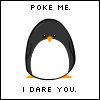

|
Korean Job Discussion Forums
"The Internet's Meeting Place for ESL/EFL Teachers from Around the World!"
|
| View previous topic :: View next topic |
| Author |
Message |
Flash Ipanema

Joined: 29 Sep 2006
Location: Seoul
|
|
| Back to top |
|
 |
HighTreason

Joined: 15 Jun 2007
|
 Posted: Fri Jun 29, 2007 8:14 am Post subject: Posted: Fri Jun 29, 2007 8:14 am Post subject: |
 |
|
| Quite frankly, this sounds like a terrible idea to me. I don't know where Korea stands on Free Speech and all that, but I'm guessing they don't value it too much based on this. Sure, there are always going to be people who take advantage of free speech to say things that are untrue and/or hurtful, but that's the price one pays for freedom, and I don't think it's that steep. If people have to constantly worry about being sued or attacked for what they say, no one will ever say anything controversial. If no one says anything controversial, society will progress very very slowly if at all. |
|
| Back to top |
|
 |
Flash Ipanema

Joined: 29 Sep 2006
Location: Seoul
|
 Posted: Fri Jun 29, 2007 8:46 am Post subject: Posted: Fri Jun 29, 2007 8:46 am Post subject: |
 |
|
Playing devil's advocate here:
America still has limitations on its free speech though. People can sue for libel or slander is someone else writes or says something untrue, and if someone makes a verbal or written threat they can be prosecuted. If someone on Dave's got really mad and threatened to kill me, I'd like to know that action could be taken to locate that person. Or, as was brought up in a livejournal fiasco a while back, if someone talks about wanting to molest a child, that person needs to get located by police so the appropriate action can be taken. The only reason Korea is doing this is obviously because online bullying and threats are getting really bad. |
|
| Back to top |
|
 |
Yu_Bum_suk

Joined: 25 Dec 2004
|
 Posted: Fri Jun 29, 2007 4:12 pm Post subject: Posted: Fri Jun 29, 2007 4:12 pm Post subject: |
 |
|
| I wonder if Professor Lemonade's still around. She'll be relieved to hear this. |
|
| Back to top |
|
 |
Damulgun

Joined: 11 Mar 2007
|
 Posted: Fri Jun 29, 2007 5:12 pm Post subject: Posted: Fri Jun 29, 2007 5:12 pm Post subject: |
 |
|
Finally getting rid of the PC crap.  |
|
| Back to top |
|
 |
Ilsanman

Joined: 15 Aug 2003
Location: Bucheon, Korea
|
 Posted: Fri Jun 29, 2007 5:20 pm Post subject: Posted: Fri Jun 29, 2007 5:20 pm Post subject: |
 |
|
| It's a natural reaction. You have a problem, so you fix it. It's not fair or prudent to ban certain people from the internet (though it would be nice, if possible), so this is their solution. |
|
| Back to top |
|
 |
mack4289

Joined: 06 Dec 2006
|
 Posted: Fri Jun 29, 2007 6:48 pm Post subject: Posted: Fri Jun 29, 2007 6:48 pm Post subject: |
 |
|
To curb cyber bullying? There's another way to look at this. I've posted about this before.
From May 14 Joong Ang Daily
http://joongangdaily.joins.com/article/view.asp?aid=2875513
"A question on the �ask anything� section of the Web portal site Naver.com on April 24 drew thousands to their computers.
�Which conglomerate�s son are they talking about that got in a bar brawl with Bukchang-dong bar employees?�
The country�s radio, television stations and newspapers weren�t saying. Largely due to Korea�s strict media laws, the media�s stories that broke that day just described the case as a retaliation beating by an upset �chairman of a big conglomerate.�
The Internet, however, provided all the answers.
Early on, the details of the case could be found quickly. Hanwha Group Chairman Kim Seung-youn was the conglomerate chairman who allegedly tracked down and assaulted, using his fists and a steel pipe, the people who fought with his son, Dong-won, in a March 8 bar fight."
A victory for the rule of law, right? Yes, but a very temporary victory:
From the May 19th Joong Ang Daily:
http://joongangdaily.joins.com/article/view.asp?aid=2875723
"Hosts of Internet blogs and interactive Web sites that allow malicious messages to be posted by anonymous users are now liable if personal reputations are harmed as a result of the comments, according to a Seoul Central District Court ruling yesterday that ordered major Korean portal sites to pay 16 million won ($17,000) in damages."
And now the ID law. I think South Korean media would have the story of the year in this country if they investigated the link between how the Hanhwa chairman was brought down and this rash of crackdowns on internet free speech. |
|
| Back to top |
|
 |
wylies99

Joined: 13 May 2006
Location: I'm one cool cat!
|
 Posted: Fri Jun 29, 2007 7:29 pm Post subject: Posted: Fri Jun 29, 2007 7:29 pm Post subject: |
 |
|
| Quote: |
| America still has limitations on its free speech though. People can sue for libel or slander is someone else writes or says something untrue, and if someone makes a verbal or written threat they can be prosecuted. |
Threats? Yes, but sue just for saying something that's "untrue"? Gotta be more to it than that. |
|
| Back to top |
|
 |
mack4289

Joined: 06 Dec 2006
|
 Posted: Fri Jun 29, 2007 8:01 pm Post subject: Posted: Fri Jun 29, 2007 8:01 pm Post subject: |
 |
|
I think to have a solid libel case in the US you have to be able to prove that the libelous statement was: false (if it's true or just an opinion, you have no case), harmful (getting small details wrong is not libel), believable (protection for satire), and that the source knew it to be untrue (so if you baited someone into publishing something false by giving them fradulent information, the publisher wouldn't be liable).
http://injury.findlaw.com/defamation-libel-slander/defamation-law-made-simple.html
"The law of defamation varies from state to state, but there are some generally accepted rules. If you believe you are have been "defamed," to prove it you usually have to show there's been a statement that is all of the following:
published
false
injurious
unprivileged.
Let's look at each of these elements in detail.
1. First, the "statement" can be spoken, written, pictured, or even gestured. Because written statements last longer than spoken statements, most courts, juries, and insurance companies consider libel more harmful than slander.
2. "Published" means that a third party heard or saw the statement -- that is, someone other than the person who made the statement or the person the statement was about. "Published" doesn't necessarily mean that the statement was printed in a book -- it just needs to have been made public through television, radio, speeches, gossip, or even loud conversation. Of course, it could also have been written in magazines, books, newspapers, leaflets, or on picket signs.
3. A defamatory statement must be false -- otherwise it's not considered damaging. Even terribly mean or disparaging things are not defamatory if the shoe fits. Most opinions don't count as defamation because they can't be proved to be objectively false. For instance, when a reviewer says, "That was the worst book I've read all year," she's not defaming the author, because the statement can't be proven to be false.
4. The statement must be "injurious." Since the whole point of defamation law is to take care of injuries to reputation, those suing for defamation must show how their reputations were hurt by the false statement -- for example, the person lost work; was shunned by neighbors, friends, or family members; or was harassed by the press. Someone who already had a terrible reputation most likely won't collect much in a defamation suit.
5. Finally, to qualify as a defamatory statement, the offending statement must be "unprivileged." Under some circumstances, you cannot sue someone for defamation even if they make a statement that can be proved false. For example, witnesses who testify falsely in court or at a deposition can't be sued. (Although witnesses who testify to something they know is false could theoretically be prosecuted for perjury.) Lawmakers have decided that in these and other situations, which are considered "privileged," free speech is so important that the speakers should not be constrained by worries that they will be sued for defamation. Lawmakers themsleves also enjoy this privilege: They aren't liable for statements made in the legislative chamber or in official materials, even if they say or write things that would otherwise be defamatory.
The public has a right to criticize the people who govern them, so the least protection from defamation is given to public officials. When officials are accused of something that involves their behavior in office, they have to prove all of the above elements of defamation and they must also prove that the defendant acted with "actual malice." (For a definition of actual malice, see the "History of Defamation and the First Amendment, below.")
People who aren't elected but who are still public figures because they are influential or famous -- like movie stars -- also have to prove that defamatory statements were made with actual malice, in most cases."
And, just for a laugh:
Department of Libel: Drew Carey Killed a Guy and Paid to Cover It Up
www.theonion.com/content/node/30828 |
|
| Back to top |
|
 |
Saxiif

Joined: 15 May 2003
Location: Seongnam
|
 Posted: Fri Jun 29, 2007 8:50 pm Post subject: Posted: Fri Jun 29, 2007 8:50 pm Post subject: |
 |
|
| Ilsanman wrote: |
| It's a natural reaction. You have a problem, so you fix it. It's not fair or prudent to ban certain people from the internet (though it would be nice, if possible), so this is their solution. |
But its a remarkably stupid solution. I can insult you as much as I want and this law wouldn't apply to me since www.eslcafe.com isn't based in Korea. All this idiotic law will do is make web pages more where their servers are based. |
|
| Back to top |
|
 |
horang
Joined: 16 Jun 2007
Location: Seoul
|
 Posted: Fri Jun 29, 2007 11:33 pm Post subject: Posted: Fri Jun 29, 2007 11:33 pm Post subject: |
 |
|
| This site should exercise the same system? Real name and real ID, and no such thing as user names. |
|
| Back to top |
|
 |
Saxiif

Joined: 15 May 2003
Location: Seongnam
|
 Posted: Sat Jun 30, 2007 2:44 am Post subject: Posted: Sat Jun 30, 2007 2:44 am Post subject: |
 |
|
| horang wrote: |
| This site should exercise the same system? Real name and real ID, and no such thing as user names. |

Um, how? |
|
| Back to top |
|
 |
in_seoul_2003
Joined: 24 Nov 2003
|
 Posted: Sat Jun 30, 2007 2:50 am Post subject: Posted: Sat Jun 30, 2007 2:50 am Post subject: |
 |
|
| horang wrote: |
| This site should exercise the same system? Real name and real ID, and no such thing as user names. |
And to think that all this time I thought your ID was simply a play on "harangue".
Why should eslcafe use real names? Has it really been that much of a traumatic experience for you? What will a real name give that a username won't? You don't agree with one extreme of complete anonymity so you are willing to go to the other: complete transparency? Has it occurred to you that this might pose alternative, equally detrimental, problems? |
|
| Back to top |
|
 |
horang
Joined: 16 Jun 2007
Location: Seoul
|
 Posted: Sat Jun 30, 2007 7:00 am Post subject: Posted: Sat Jun 30, 2007 7:00 am Post subject: |
 |
|
| in_seoul_2003 wrote: |
| horang wrote: |
| This site should exercise the same system? Real name and real ID, and no such thing as user names. |
And to think that all this time I thought your ID was simply a play on "harangue".
Why should eslcafe use real names? Has it really been that much of a traumatic experience for you? What will a real name give that a username won't? You don't agree with one extreme of complete anonymity so you are willing to go to the other: complete transparency? Has it occurred to you that this might pose alternative, equally detrimental, problems? |
What does this harangue mean? I have no idea.
Anyway if this site forces the posters to use real names then the posters will be serious and responsible with posts they make. Simple. |
|
| Back to top |
|
 |
Young FRANKenstein

Joined: 02 Oct 2006
Location: Castle Frankenstein (that's FRONKensteen)
|
 Posted: Sat Jun 30, 2007 8:21 am Post subject: Posted: Sat Jun 30, 2007 8:21 am Post subject: |
 |
|
| horang wrote: |
| Anyway if this site forces the posters to use real names [...] Simple. |
Simple??? HOW would this site force us to use real names. We come from a variety of countries, all of which have different methods of identifying people. It's not like Korea where you are all given a national ID number. How would this site reconcile such a diversity of identifications? |
|
| Back to top |
|
 |
|
|
You cannot post new topics in this forum
You cannot reply to topics in this forum
You cannot edit your posts in this forum
You cannot delete your posts in this forum
You cannot vote in polls in this forum
|
|

